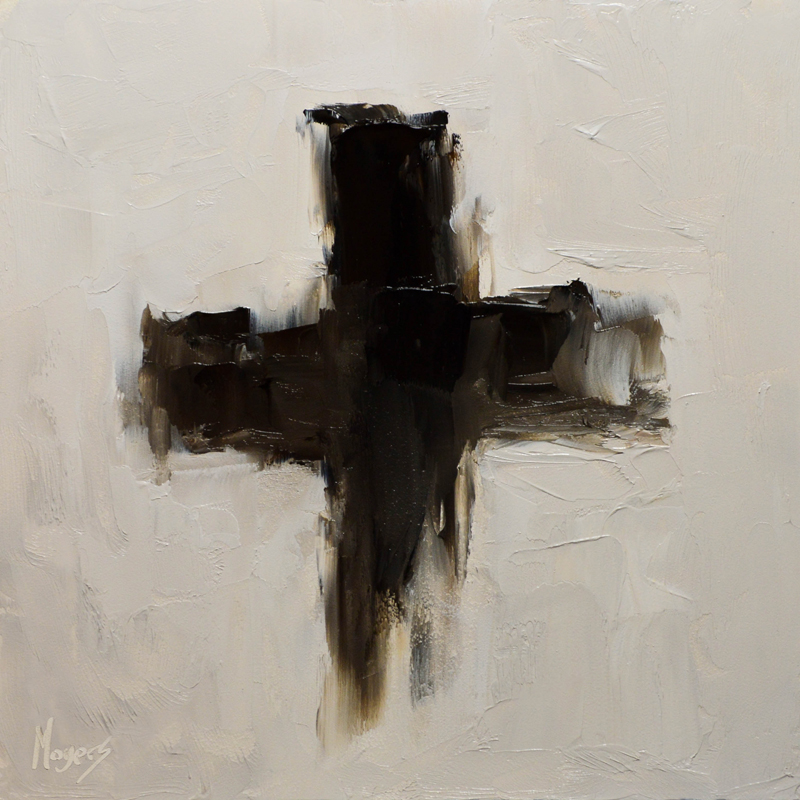We come here today to have our faces marked with ash. We do this even though Jesus tells us not to practice our piety in front of people. After all, God can see our hearts and actions. So there’s no need to impress God with big displays of our piety. Nevertheless, here we are, about to have our faces marked with ash.
We find ourselves sitting in the crowd listening to Jesus give his Sermon on the Mount. We hear him tell us that when we give our offerings, pray, or fast, we should make sure no one is looking.
If you’re going to fast, don’t make it look like you’re miserable. Instead of disfiguring your face, wash it and put oil on your head. Look good. So, no ash on the forehead! When you pray, don’t stand on a corner so everyone can hear your eloquence. Instead, go into a closet and talk with God. When you give your offerings, don’t stand up and make a big deal about it. Don’t expect a plaque on the wall, just take comfort in knowing that God sees you and that is reward enough.
We hear this word about practicing our piety on the day we begin a Lenten journey that will take us through Good Friday to Easter. While Epiphany and Easter speak of joy and light, Lent is a much quieter and more introspective season. It gives us an opportunity to look inward and take stock of who we are before God.
We could compare the Lenten season to going in for an annual physical. That’s when we discover if there are any issues to deal with. Our doctor may reveal some things about our bodies that we would be wise to correct. While we may not like what we hear, it’s important that we pay attention to the signs our bodies and spirits send us. What is true of our bodies is true of our life with God. There are things we might do to enhance our spiritual health, and Lent gives us an opportunity to put them into motion.
Although Jesus warns against practicing our piety to be noticed by others, sometimes we feel the need to be noticed. Maybe it’s not our piety, it’s our personhood that needs to be noticed. If we’re honest, we all need and want to be noticed by others. We don’t have to be famous. We just need to know that someone sees us.
It’s great to know that God sees us and rewards us, but it would be nice to know that someone other than God notices us. That’s one of the reasons the last two years of COVID separation have been difficult. We’ve not had the opportunities to be together like before. Social media has kept us in contact, but we need more.
There’s an old movie from the 1970s called Cipher in the Snow. It was used in churches and schools to raise awareness of our need to be noticed. The story goes like this: There was a boy who didn’t have any friends. He always stood off to the side and no one seemed to notice him. One day, he couldn’t find a seat on the school bus so he asked the bus driver to let him off the bus. After he stepped off the bus, he collapsed into the snow and died. The only teacher who seemed to know anything about him was his math teacher, who was tasked with giving the obituary at the funeral. As he wrote the obituary, the teacher realized he didn’t know much about this boy. He couldn’t even find ten students who knew him. The boy was a cipher, a zero, who died in the snow.
While this might seem rather melodramatic, it reminds us that we need to be noticed. Once again, it’s good to know that God sees us, but we need other human beings to see us and know us and love us.
We see this truth revealed in Genesis 2, where God discovers that the first human was lonely. So God created a companion for him. In other words, God realized that we need companions other than God, as important as that relationship is to a healthy and flourishing life.
While Jesus warns against practicing piety to be noticed, perhaps the word we need to hear this Lenten season is a call to notice our neighbors who have been created in the image of God. So, as we begin this Lenten season, with our faces disfigured by ash, let us commit ourselves to noticing and include our neighbors whom God loves so that we might be a blessing to them, and most assuredly we will be blessed in return. Of course, it’s important that we notice our neighbors in Ukraine who suffer a devastating invasion of their country.
Ash Wednesday gives us the opportunity to look inwardly, to take stock of our lives, to repent of sin, and receive a word of assurance that in Christ God is reconciling the world to God’s self. Therefore, today is the day of salvation (2 Cor. 5:19-6:10).
Preached by:
Dr. Robert D. Cornwall
Joint Ash Wednesday Service
First Presbyterian Church
Troy, Michigan
Ash Wednesday
March 2, 2022
Moyers, Mike. Ash, from Art in the Christian Tradition, a project of the Vanderbilt Divinity Library, Nashville, TN. https://diglib.library.vanderbilt.edu/act-imagelink.pl?RC=57140 [retrieved March 2, 2022]. Original source: Mike Moyers, https://www.mikemoyersfineart.com/.

Comments